By ELIZABETH GARONE
Their journeys to the United States have not been easy, taking anywhere from a couple of weeks to several months. They have come by bus, train, and on foot. When they arrive, they are often malnourished. They may have oral thrush, and rashes and insect bites on their arms and legs. Sometimes, their feet are covered in blisters from all of the walking.
They are unaccompanied minors, age 12 to 17, who have made their way north to the United States from Mexico, Guatemala, Honduras, El Salvador and Nicaragua. Through the Unaccompanied Alien Children Program, which is funded through the federal government's Office of Refugee Resettlement, the Maryville Academy in Des Plaines, Ill., serves as a receiving site and a gateway to trauma-informed services and shelter in Northern Illinois.
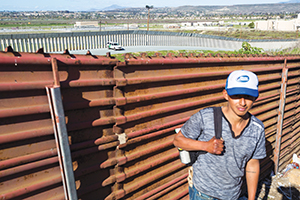
Many have entered the U.S. without visas, usually at the Southern border. Some have turned themselves in to a Border Patrol agent, because they are seeking asylum. Others enter without inspection and are apprehended by Border Patrol, said Mary McCann Sanchez, program director at the Maryville Academy, a child health and welfare organization rooted in Catholic social teaching.
The children are transported to Maryville Academy by Office of Refugee Resettlement staff. In addition, a few of the immigrant children come to Maryville Academy after having lived alone in the community. Some lived with an older family member who passed away or was arrested.
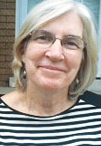
Eventually, these young immigrants and refugees will be placed with family members or sponsors, most locally or, in some cases, in other parts of the country. If reunification or sponsorship turns out not to be possible, children enter into long-term foster care. So far, Maryville Academy has welcomed about 400 children, according to McCann Sanchez. The academy houses and cares for the children when they arrive in the Chicago area and are waiting for their placements.
Within 48 hours of coming to Maryville Academy, the Unaccompanied Alien Children Program requires each child undergo a full medical screening and be brought up-to-date with their vaccinations. The Maryville Academy has partnered with the New Beginnings Clinic at AMITA Health Holy Family Medical Center, also in Des Plaines, to make this happen. (AMITA Health is a member of Ascension.) The Maryville Academy and the AMITA clinic have a long-standing relationship, according to Yolande Wilson-Stubbs, president of AMITA Health Holy Family Medical Center. "This program is the perfect continued marriage in relationship with Maryville," she said.
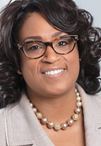
The medical exams aren't just about checking the children's physical health, according to Teresa Del Toro, the New Beginnings Clinic nurse manager. "We cover everything: the physical, emotional and the spiritual.
"When (the immigrant teens) first walk into the waiting area, they are very nervous because they don't know what is going to be expected of them," said Del Toro. In many cases, the nurses know very little — if anything — about their individual stories. Sometimes, the minors are fleeing extreme poverty and depravation, or violence in their home countries. The patients may have lost a parent to violence. Their families might have been displaced by a natural disaster. Some of the teens have been raped, according to McCann Sanchez.
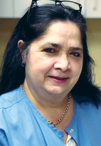
Their stories can be harrowing, agreed Del Toro, recalling the teenage brother and sister who saw their father shot. The two came to the United States to be reunited with a mother neither remembered because she had left when they were very young. Or, the two sisters who were kidnapped and raped and then released. They just kept traveling north so they could find safety and a fresh start in the United States.
It is Del Toro's job and that of the rest of the clinic staff to help these vulnerable patients feel comforted and cared for as they undergo comprehensive medical exams. Common medical procedures, such as immunizations, may be foreign and quite frightening to them. "Most of these kids have never had any vaccines in their life," said Del Toro. But, in order to be resettled, the federal children's program requires that immunizations be caught up to their age group — and that can mean a lot of needles.
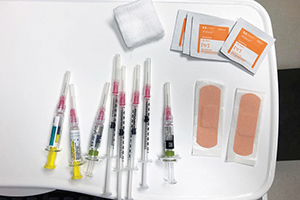
It helps immensely that all of the staff speak Spanish, the native language of most of the refugee teens. The staff are able to explain to the children everything that they are going to do and why they are doing it. It also gives the children the opportunity to ask any questions, according to Del Toro.
"They are able to relax, even after learning that they are going to get eight or nine immunizations," she said. And, by the time they leave the clinic, they are usually smiling — despite their sore arms. "For someone else to see them, to acknowledge them, and to be there for them, that means a lot," she said.
Treating them like any other kid is one of the best actions the staff can take, according to Wilson-Stubbs. "They don't treat them like refugees, shuffling them off into a certain room. They treat them just like any client or family member or child that comes into this clinic," she said, "with dignity and respect."
Watch a video about the Unaccompanied Alien Children Program, shown at the 2018 Assembly. (The children shown in the video are playing the role of unaccompanied minors and are not participants in the program.) :
